
Gibraltar: The Gateway to the Mediterranean
Gibraltar is a unique blend of British and Mediterranean cultures, set against the stunning backdrop of the iconic Rock of Gibraltar. This small but vibrant city is a must-visit for its rich history, diverse wildlife, and breathtaking views. As you wander through its charming streets, you'll encounter a mix of English pubs, Spanish cafes, and duty-free shops, all contributing to an unforgettable experience. One of the main attractions is the Rock of Gibraltar, a limestone ridge that offers panoramic vistas of the surrounding area. Take a cable car ride to the top for an unparalleled view of the Mediterranean Sea, the Atlantic Ocean, and even the coast of Africa on a clear day. The Rock is also home to the famous Barbary macaques, Europe's only wild monkey population, which are both fascinating and cheeky. For history buffs, Gibraltar has plenty to offer. Explore the Great Siege Tunnels, a network of passages carved out during the 18th century, or visit the Moorish Castle, a remnant of the Islamic rule over the Iberian Peninsula. The city is also known for its military heritage, with numerous fortifications and cannons scattered throughout. Gibraltar's natural beauty is equally captivating. The Gibraltar Nature Reserve is a haven for hikers and bird watchers, while the crystal-clear waters around the city are perfect for diving and dolphin-watching tours. The St. Michael's Cave, a stunning limestone cave, is another must-see, often hosting concerts and events in its dramatic underground setting. Whether you're interested in history, nature, or simply soaking up the sun, Gibraltar offers a little something for everyone. Its unique blend of cultures and scenic landscapes make it a truly memorable destination.
Local tips in Gibraltar
- Visit the Rock of Gibraltar early in the morning to avoid crowds and get the best views.
- Carry some small change for the cable car and local buses; they often require exact fare.
- Wear comfortable shoes for walking, as the city has many hills and uneven paths.
- Respect the Barbary macaques; they are wild animals and can be unpredictable.
- Take advantage of duty-free shopping, especially for alcohol and tobacco products.
- Try the local cuisine, a mix of British and Spanish influences with delicious seafood.
- Check the schedule for events at St. Michael's Cave, as it often hosts unique performances.
- Bring a passport if you plan to walk across the border to Spain for a day trip.
Gibraltar: The Gateway to the Mediterranean
Gibraltar is a unique blend of British and Mediterranean cultures, set against the stunning backdrop of the iconic Rock of Gibraltar. This small but vibrant city is a must-visit for its rich history, diverse wildlife, and breathtaking views. As you wander through its charming streets, you'll encounter a mix of English pubs, Spanish cafes, and duty-free shops, all contributing to an unforgettable experience. One of the main attractions is the Rock of Gibraltar, a limestone ridge that offers panoramic vistas of the surrounding area. Take a cable car ride to the top for an unparalleled view of the Mediterranean Sea, the Atlantic Ocean, and even the coast of Africa on a clear day. The Rock is also home to the famous Barbary macaques, Europe's only wild monkey population, which are both fascinating and cheeky. For history buffs, Gibraltar has plenty to offer. Explore the Great Siege Tunnels, a network of passages carved out during the 18th century, or visit the Moorish Castle, a remnant of the Islamic rule over the Iberian Peninsula. The city is also known for its military heritage, with numerous fortifications and cannons scattered throughout. Gibraltar's natural beauty is equally captivating. The Gibraltar Nature Reserve is a haven for hikers and bird watchers, while the crystal-clear waters around the city are perfect for diving and dolphin-watching tours. The St. Michael's Cave, a stunning limestone cave, is another must-see, often hosting concerts and events in its dramatic underground setting. Whether you're interested in history, nature, or simply soaking up the sun, Gibraltar offers a little something for everyone. Its unique blend of cultures and scenic landscapes make it a truly memorable destination.
When is the best time to go to Gibraltar?
Iconic landmarks you can’t miss
Saint Michael's Cave
Explore the depths of history and natural beauty at St Michael's Cave, Gibraltar's iconic subterranean attraction in the Upper Rock Nature Reserve.
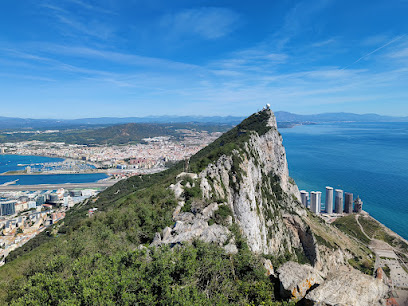
Gibraltar Cable Car
Reach the Top of the Rock in minutes for stunning views, wild monkeys, and historical exploration. A Gibraltar highlight!
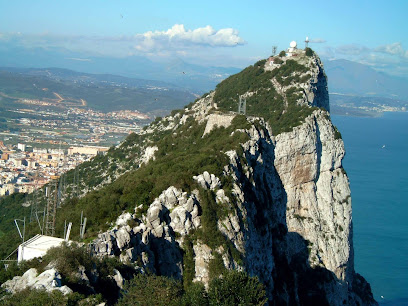
Europa Point Lighthouse
Guiding ships for centuries at Gibraltar's southern tip, offering breathtaking views of where the Atlantic and Mediterranean meet.
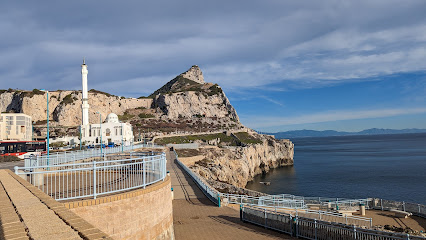
Skywalk Gibraltar
Experience breathtaking panoramic views from the glass-bottomed Skywalk, perched atop the Rock of Gibraltar, offering a unique perspective of Europe and Africa.
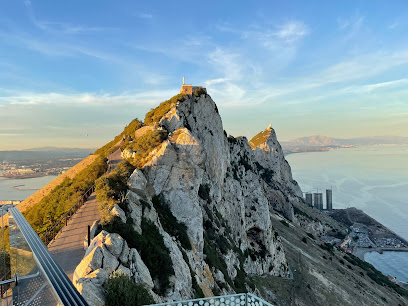
Gibraltar Botanic Gardens
Discover a serene escape in Gibraltar's historic Botanic Gardens, home to diverse flora, tranquil paths, and captivating wildlife.
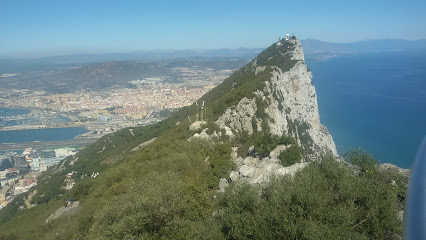
Moorish Castle
Explore Gibraltar's Moorish Castle: a historic fortress with panoramic views, showcasing centuries of Iberian Peninsula history and culture.

General Sikorski Memorial
A historical landmark in Gibraltar honoring General Władysław Sikorski, a symbol of Polish resilience during WWII, with stunning views of the Mediterranean.
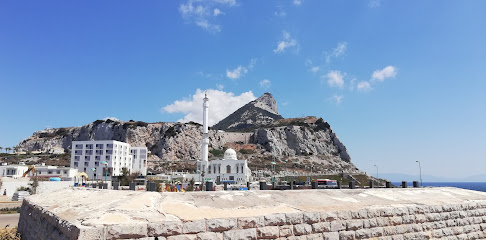
Apes Den
Meet the famous Barbary macaques at Apes' Den in Gibraltar's Upper Rock Nature Reserve, the only wild monkey population in Europe!
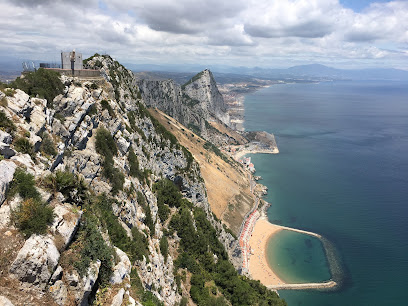
Windsor Suspension Bridge
Experience breathtaking views and a thrilling walk on Gibraltar's Windsor Suspension Bridge, suspended high above a dramatic gorge.
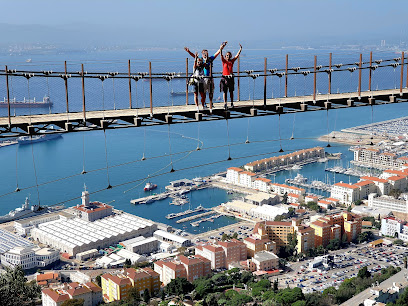
Commonwealth Park
Discover Gibraltar's tranquil oasis: lush gardens, serene water features, and a vibrant community space in the heart of the city.
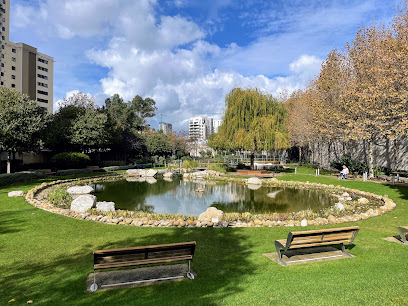
King Fahd Bin Abdulaziz Al Saud Mosque
Discover Gibraltar's King Fahd Mosque: A stunning architectural gem and symbol of cultural harmony at Europa Point.
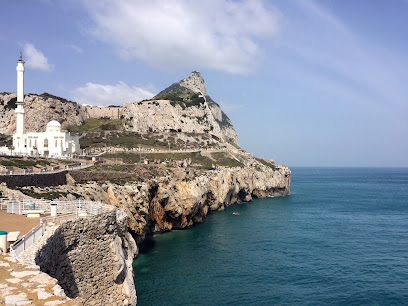
Great Siege Tunnels
Explore Gibraltar's Great Siege Tunnels: a testament to military ingenuity and a window into the Rock's strategic past.
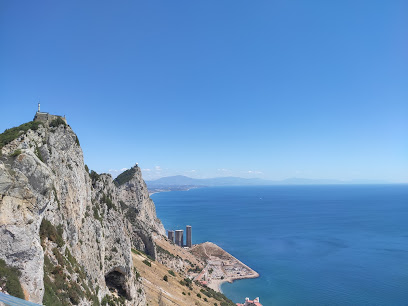
The Convent, Governors Residence
Explore the historic Convent, the Governor's Residence in Gibraltar, and uncover a blend of rich heritage and stunning architecture in a serene setting.
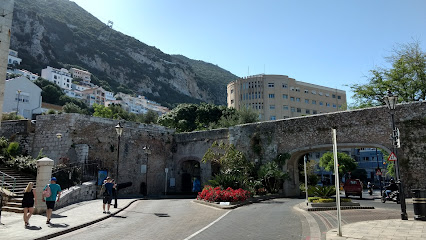
Trafalgar Cemetery
Explore a peaceful cemetery in Gibraltar with graves of British sailors and yellow fever victims, offering a glimpse into naval history.
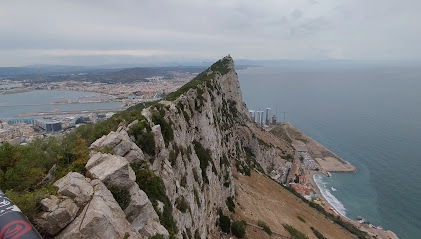
Mediterranean Steps
Hike Gibraltar's historic Mediterranean Steps for breathtaking views, challenging trails, and a unique blend of nature and military history.
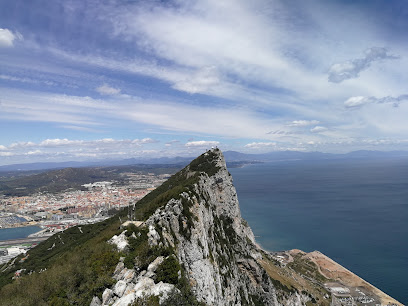
Unmissable attractions to see
Baelo Claudia
Explore the ancient Roman ruins at Baelo Claudia, a historical landmark in Cádiz, Spain, offering stunning coastal views and rich archaeological heritage.
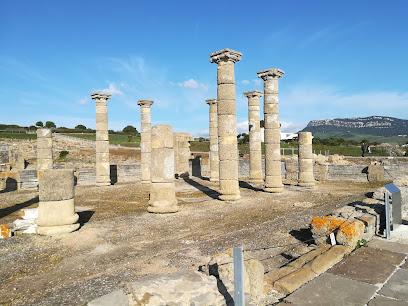
Parque Natural Los Alcornocales
Experience the breathtaking beauty of Parque Natural Los Alcornocales, a national park in Cádiz filled with lush landscapes, diverse wildlife, and endless hiking opportunities.
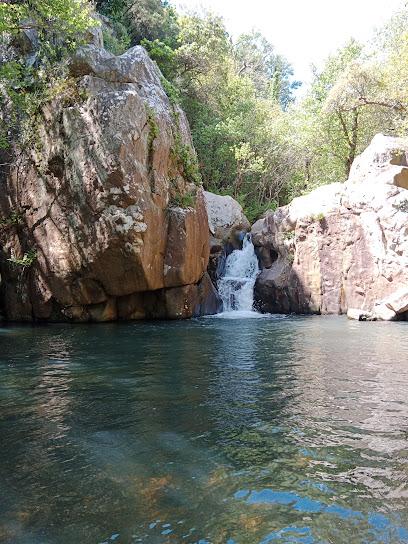
Selwo Aventura
Explore Selwo Aventura, Estepona's premier wildlife park, where adventure meets education amidst exotic animals and breathtaking landscapes.

Bolonia Beach
Experience the pristine beauty of Bolonia Beach, where golden sands meet crystal-clear waters and rich history awaits your discovery.
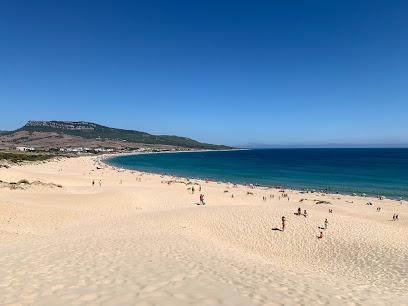
Estepona Orchid House
Explore Estepona Orchid House, a stunning botanical garden in Málaga, home to over 1,300 orchid species and a serene tropical paradise for nature lovers.
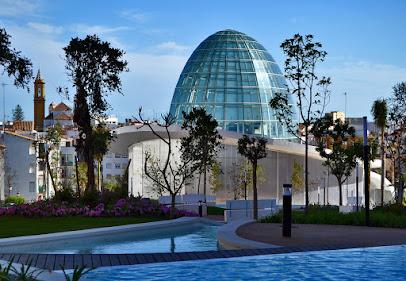
Strait viewpoint
Explore the stunning Strait Viewpoint in Tarifa, where the Atlantic meets the Mediterranean and breathtaking views await.
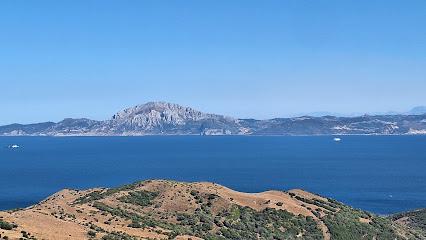
Playa del Cristo
Discover Playa del Cristo, a beautiful public beach in Estepona, where golden sands meet azure waters for an unforgettable sun-soaked getaway.
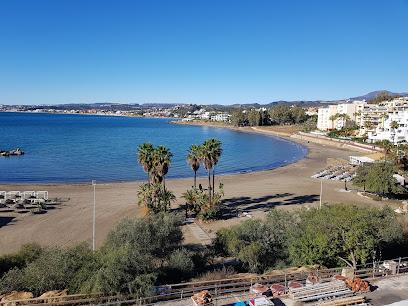
Venta La Parada
Experience authentic Andalusian cuisine at Venta La Parada, a charming bar and grill in Alcalá de los Gazules, where flavors come alive.

Castillo de Castellar de la Frontera
Explore the breathtaking Castillo de Castellar de la Frontera, a majestic medieval fortress in Cádiz, rich in history and stunning views.

Puerto Deportivo de Estepona
Experience the charm of Puerto Deportivo de Estepona, where stunning views meet vibrant dining and exciting water activities along the Costa del Sol.
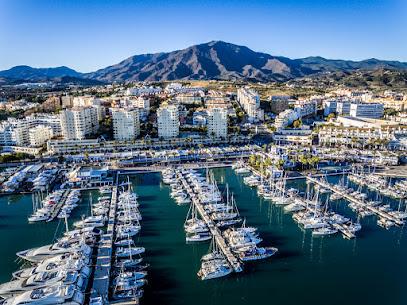
Skywalk Gibraltar
Discover breathtaking views and rich history at Skywalk Gibraltar, an iconic glass walkway offering stunning perspectives of the Mediterranean and beyond.
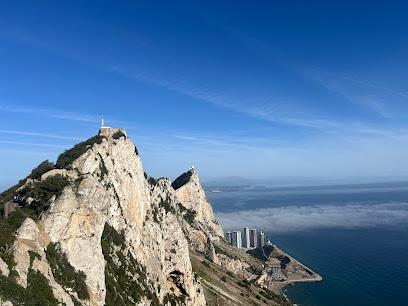
Gibraltar Botanic Gardens
Explore Gibraltar Botanic Gardens, a lush haven of diverse plant life and tranquility, perfect for nature lovers and serene escapes.
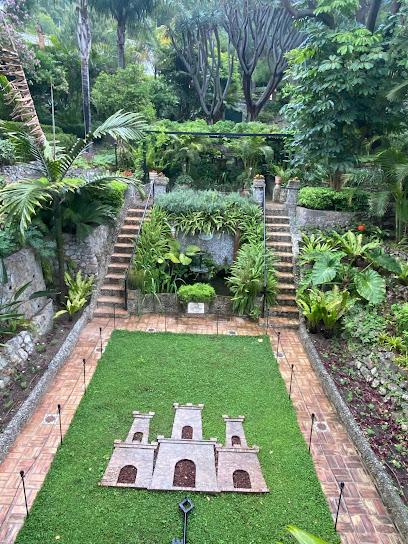
Moorish Castle
Explore the Moorish Castle in Gibraltar, a stunning historical landmark offering breathtaking views and rich cultural heritage.
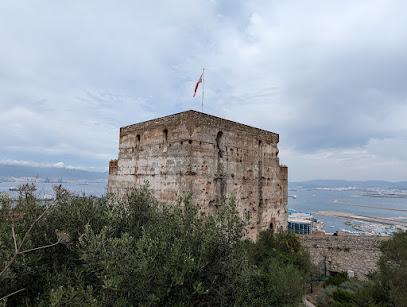
Tourist Complex Smir Park
Explore Smir Park in M'diq: A vibrant tourist complex featuring lush gardens, thrilling attractions, and authentic Moroccan cuisine for an unforgettable experience.
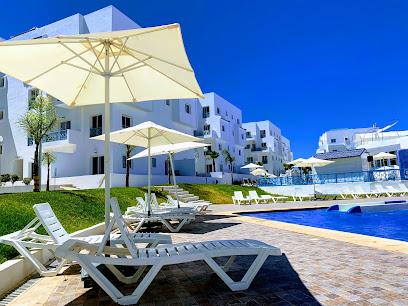
Apes Den
Experience the playful Barbary macaques in their natural habitat at Gibraltar's scenic Apes Den, a must-visit tourist attraction with breathtaking views.
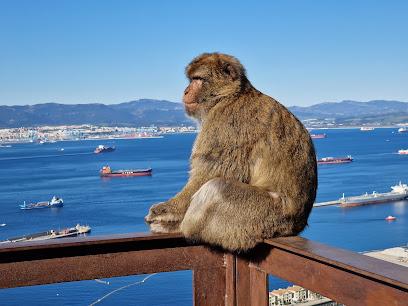
Essential places to dine
The Clipper
Experience culinary excellence at The Clipper in Gibraltar, where local flavors meet international cuisine in a charming atmosphere.
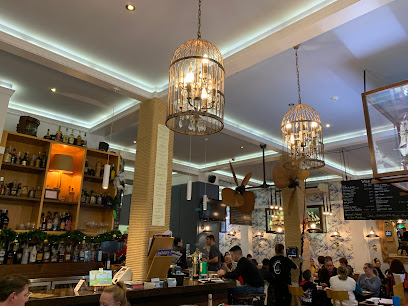
Biancas Restaurant
Discover culinary delights at Bianca's Restaurant in Gibraltar's Marina Bay Square – where local flavors meet international cuisine.
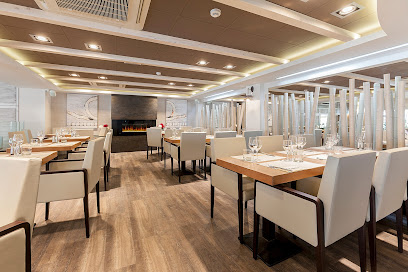
Mamma Mia - Pizzeria & Pasta House
Experience authentic Italian cuisine at Mamma Mia - Pizzeria & Pasta House in Gibraltar, where every bite is a celebration of flavors.
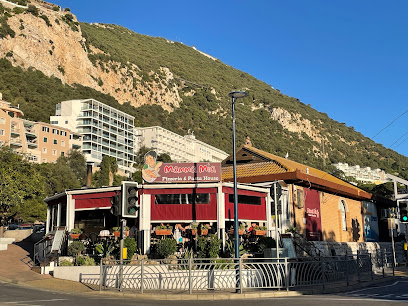
The Horseshoe
Discover The Horseshoe in Gibraltar - where local flavors meet international cuisine in a charming setting.
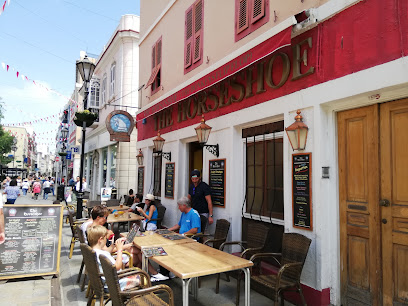
Little Bay Bar and Indian Restaurant
Discover Little Bay Bar and Indian Restaurant: Your gateway to authentic Indian flavors with stunning ocean views in Gibraltar.
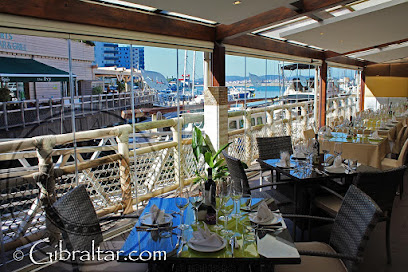
Charlie's Steak House And Grill
Experience the perfect blend of Indian spices and classic steakhouse flavors at Charlie's Steak House And Grill in Gibraltar.
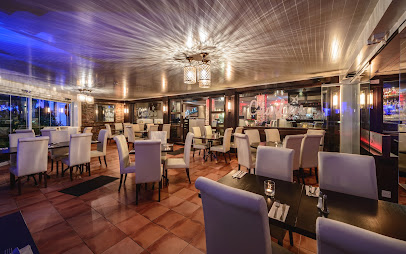
Paparazzi Steakhouse
Experience culinary excellence at Paparazzi Steakhouse in Gibraltar - where every steak tells a story.
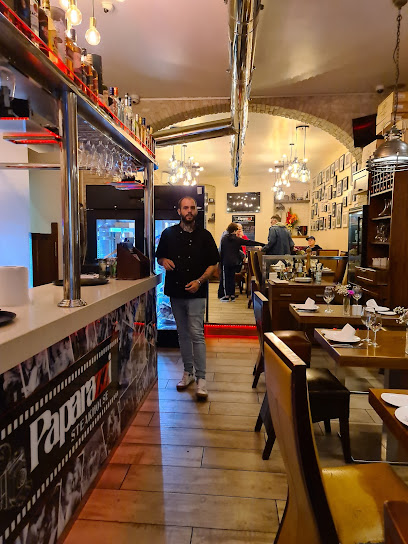
Aquaterra
Discover Aquaterra in Gibraltar – where gourmet dining meets local charm in a unique setting.
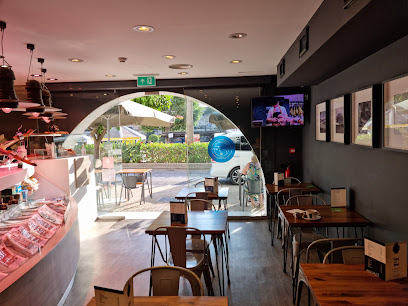
The Little Rock Restaurant & Bar
Experience exquisite local cuisine at The Little Rock Restaurant & Bar in Gibraltar, where every meal tells a story.
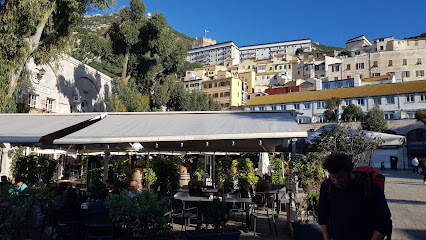
Curry & Nigiri
Experience the perfect fusion of Indian and Asian cuisine at Curry & Nigiri in Gibraltar, where flavor meets creativity.
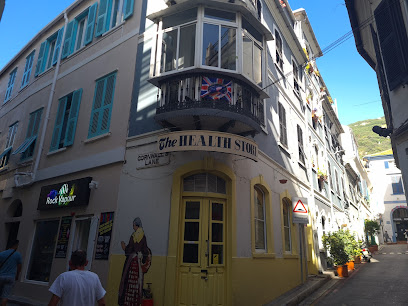
The Royal Calpe
Indulge in delicious local flavors at The Royal Calpe – Gibraltar's premier dining destination offering diverse cuisine in a warm atmosphere.
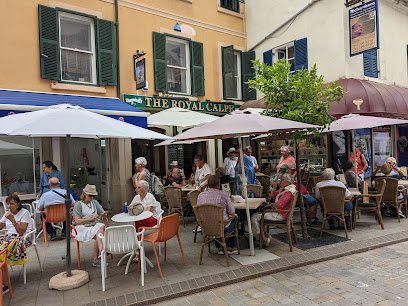
Rendezvous Chargrill
Discover culinary delights at Rendezvous Chargrill in Gibraltar - where delicious food meets stunning waterfront views.
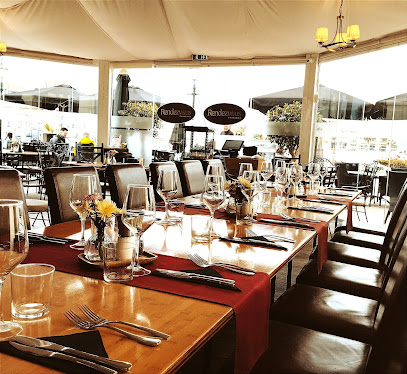
GAUCHOS Steakhouse
Experience exquisite dining at GAUCHOS Steakhouse in Gibraltar, where premium steaks meet exceptional service in a stunning waterfront setting.
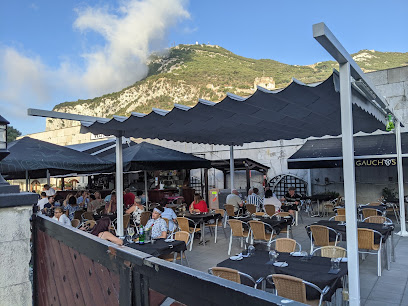
Hacienda Patagonica
Experience authentic Spanish tapas at Hacienda Patagonica in Gibraltar - where flavor meets tradition in a vibrant setting.
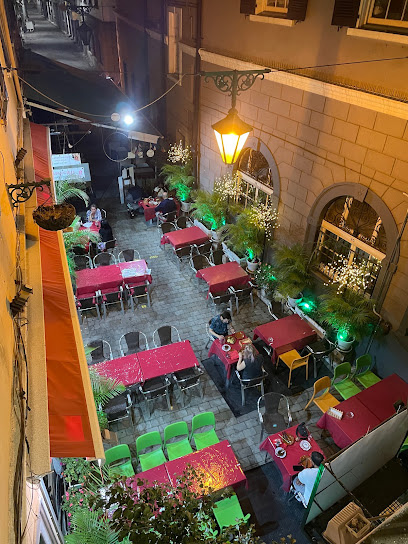
Moniques Bistro & Cafe
Experience exquisite dining at Moniques Bistro & Cafe in Gibraltar—where local flavors meet international flair.
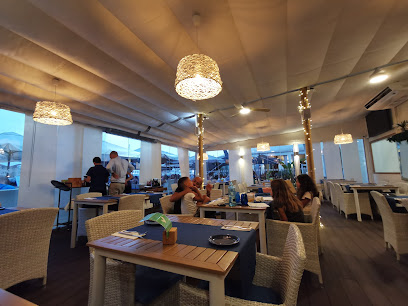
Markets, malls and hidden boutiques
Marks & Spencer
Discover a unique blend of fashion and gourmet products at Marks & Spencer, Gibraltar's premier department store for quality shopping.
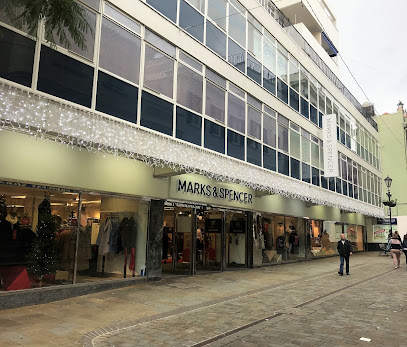
Trends
Discover the latest fashion trends at Trends in Gibraltar, your go-to destination for designer clothing and accessories in a friendly shopping atmosphere.
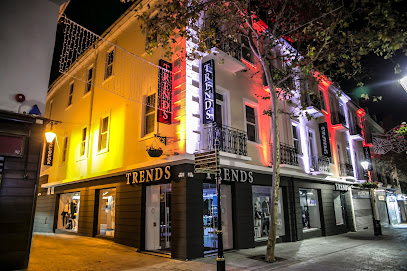
Pandora
Explore Pandora in Gibraltar for exquisite handcrafted jewelry that captures the essence of your travels with timeless elegance.
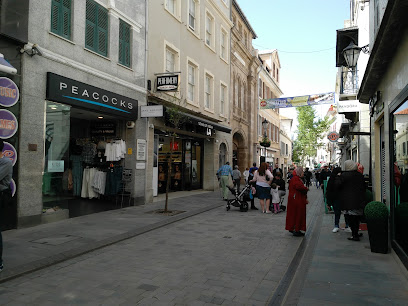
SWAROVSKI
Experience the elegance of Swarovski in Gibraltar, where luxury jewelry and exquisite crystal creations await every visitor.
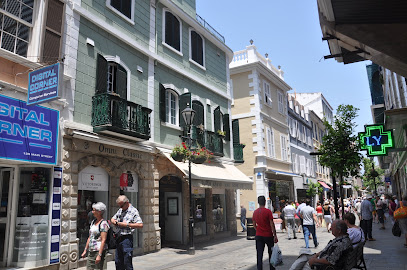
Antonio Diamond Boutique
Discover exquisite diamonds and fine jewelry at Antonio Diamond Boutique in Gibraltar – a haven for jewelry lovers.
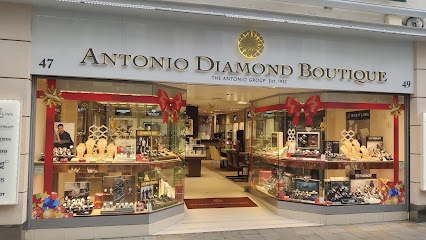
Marble Arc
Discover unique fashion pieces at Marble Arc, Gibraltar's stylish clothing store offering contemporary trends and exceptional service.
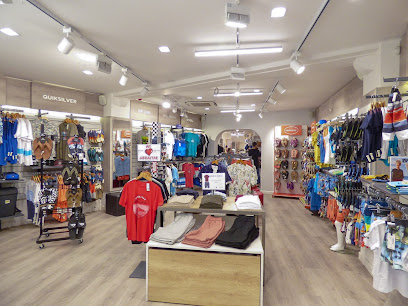
Don House Arcade
Discover the vibrant shopping experience at Don House Arcade, Gibraltar's bustling hub for unique finds and local treasures.
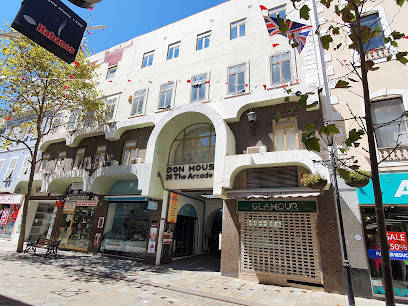
The Gibraltar Gift Shop
Explore The Gibraltar Gift Shop for an array of toys, games, and unique gifts, perfect for creating memorable moments in Gibraltar.
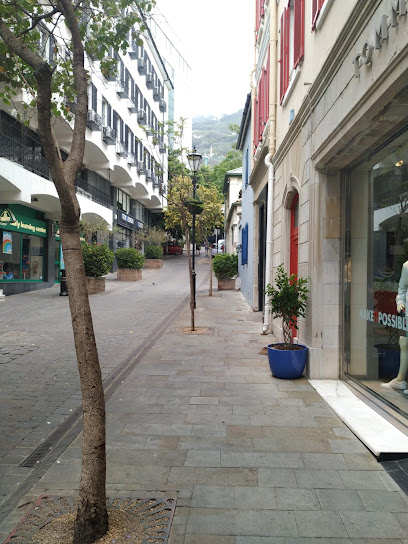
COSMOS
Discover unique souvenirs and the latest gadgets at COSMOS, Gibraltar's go-to gift shop for tourists seeking authentic experiences.
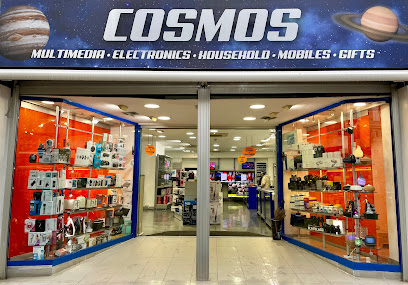
Isolabella
Discover Isolabella, Gibraltar's chic clothing store offering stylish apparel and accessories in a unique shopping atmosphere.
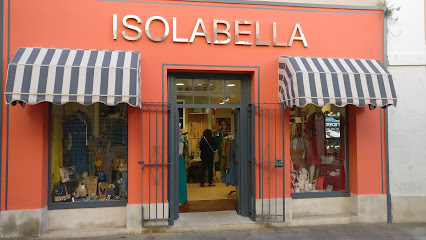
Omni Optic
Explore Omni Optic in Gibraltar, your go-to gift shop for unique souvenirs and local crafts that embody the spirit of this beautiful destination.
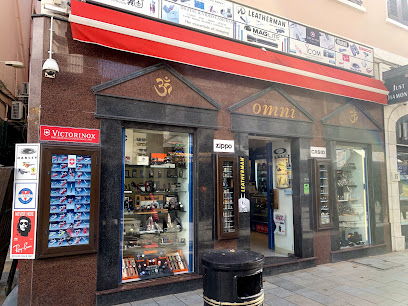
Walk Shoe Boutique
Discover stylish footwear at Walk Shoe Boutique in Gibraltar, where quality meets fashion for every occasion.
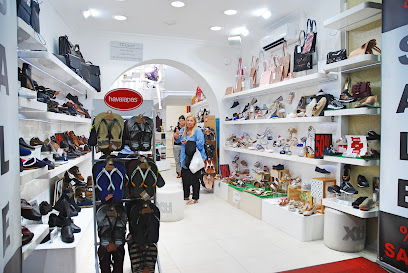
Gibraltar Arts and Crafts
Explore Gibraltar Arts and Crafts for unique handmade treasures and support local artisans in a vibrant cultural hub.
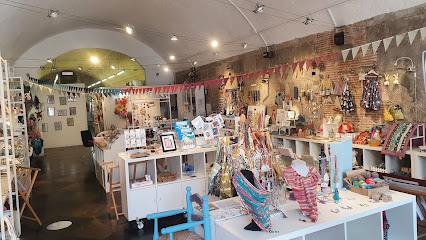
Jade Ltd
Explore Jade Ltd in Gibraltar for a unique shopping experience offering stylish clothing and accessories at great prices.
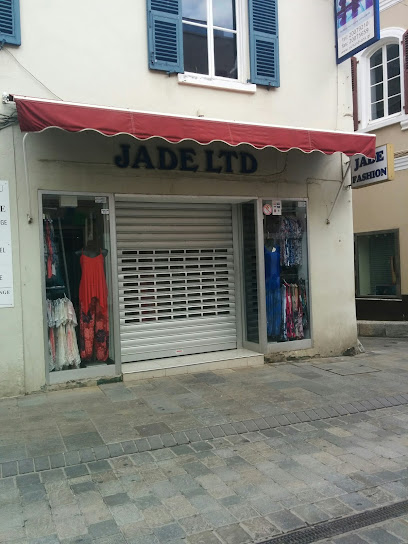
Kelly's Dandumal & Sons
Explore the essence of Gibraltar at Kelly's Dandumal & Sons, where unique souvenirs and local crafts await every visitor.
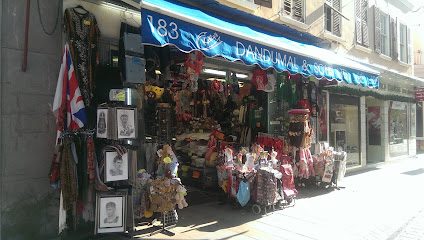
Essential bars & hidden hideouts
The Angry Friar
Discover the lively spirit of Gibraltar at The Angry Friar, a charming pub with affordable eats and a welcoming atmosphere for all.
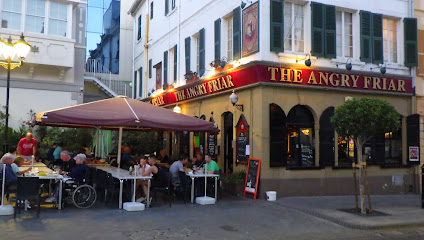
The Lord Nelson
Experience the vibrant atmosphere and delightful refreshments at The Lord Nelson, a must-visit pub in the heart of Gibraltar.
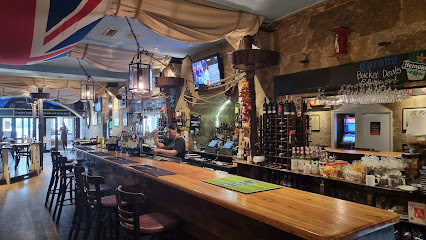
Jury's Café and Wine Bar
Discover the flavors of Gibraltar at Jury's Café and Wine Bar, where a delightful menu and cozy ambiance await every visitor.
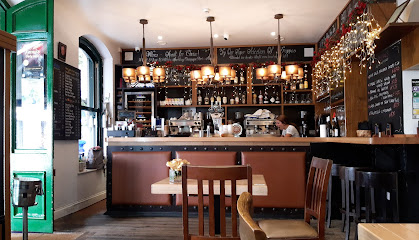
O'Reilly's Irish Pub & Steakhouse
Experience the warmth of Ireland at O'Reilly's Irish Pub & Steakhouse, where delicious food and vibrant atmosphere await in Gibraltar.
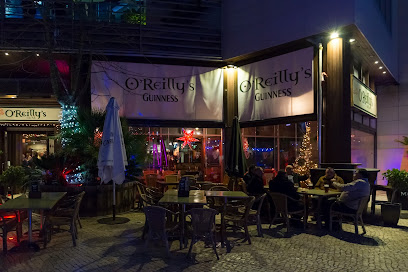
The Horseshoe
Experience the flavors of Gibraltar at The Horseshoe, where delightful dishes and a warm atmosphere await every visitor.
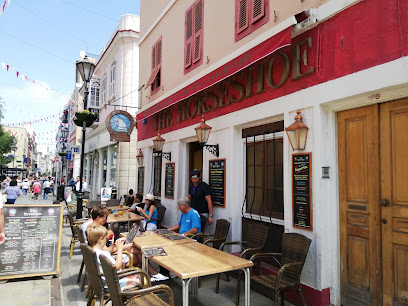
The Lounge Bar & Gastro Bar
Discover the taste of Gibraltar at The Lounge Bar & Gastro Bar, where exquisite cuisine meets stunning waterfront views in a vibrant atmosphere.
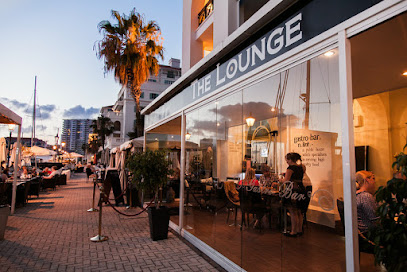
Star Bar
Discover the lively essence of Gibraltar at Star Bar, a perfect blend of local charm and vibrant atmosphere for an unforgettable night out.
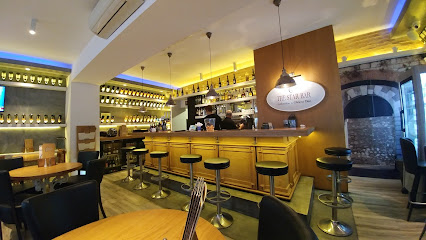
All's Well
Discover the best of Gibraltar's culinary scene at All's Well, a delightful tapas bar in Grand Casemates Square, perfect for food lovers.
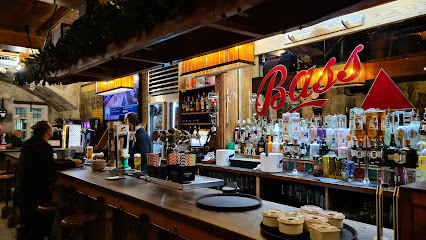
Venture Inn Pub/Bar Gibraltar
Discover Gibraltar's vibrant Irish pub at Venture Inn, where hearty meals and local drinks blend with a warm, welcoming atmosphere.
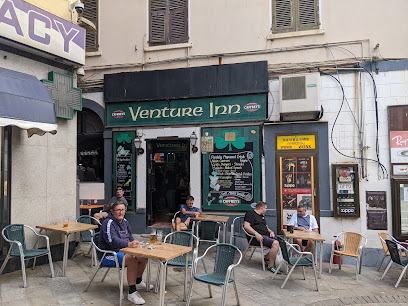
The Skull
Experience the quirky charm of The Skull Bar in Gibraltar, where eclectic decor meets a vibrant atmosphere and a fantastic drink selection.
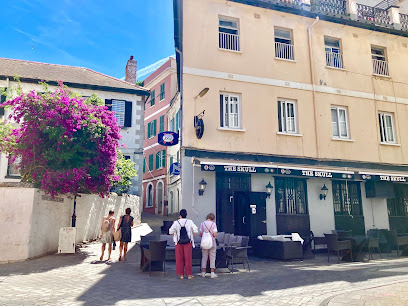
The Hendrix Pub
Experience the vibrant atmosphere of The Hendrix Pub in Gibraltar, where great drinks and live music create unforgettable moments.
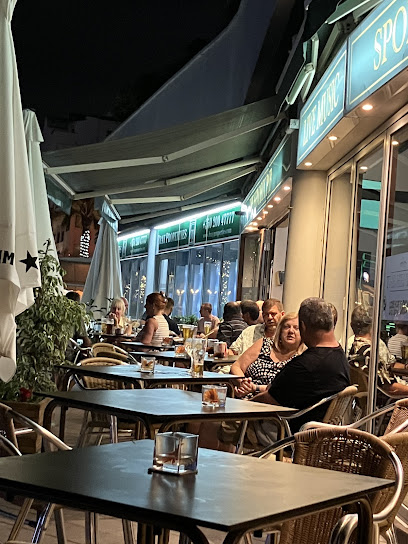
The Ship
Experience the vibrant atmosphere and stunning views at The Ship, Gibraltar's premier bar in Marina Bay, perfect for a relaxing evening.
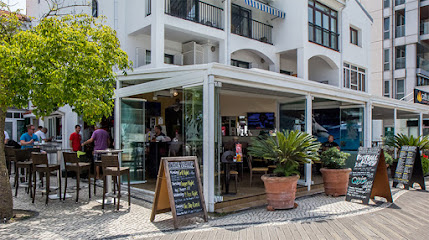
The Aragon
Discover the flavors of Gibraltar at The Aragon, a cozy restaurant offering delicious local and international dishes in a charming setting.
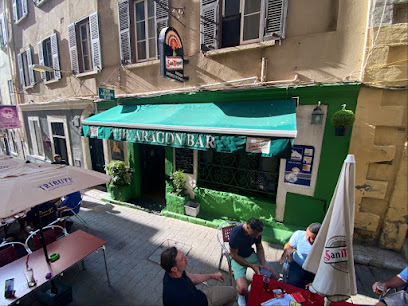
Three Owls
Discover the cozy ambiance of The Three Owls in Gibraltar, where friendly service meets an impressive selection of beverages for a memorable experience.
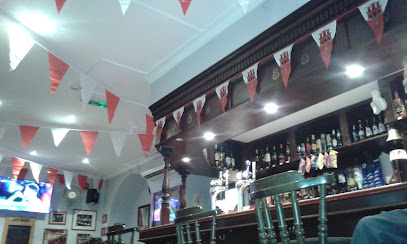
Local Phrases
-
- HelloHola
[oh-la] - GoodbyeAdiós
[ah-dee-ohs] - YesSí
[see] - NoNo
[noh] - Please/You're welcomePor favor/De nada
[por fah-vor/de nah-dah] - Thank youGracias
[grah-syahs] - Excuse me/SorryPerdón/Lo siento
[pair-dohn/loh see-en-toh] - How are you?¿Cómo estás?
[koh-moh ehs-tahs] - Fine. And you?Bien. ¿Y tú?
[byen. ee too] - Do you speak English?¿Hablas inglés?
[ah-blahs een-glehs] - I don't understandNo entiendo
[noh ehn-tyen-doh]
- HelloHola
-
- I'd like to see the menu, pleaseMe gustaría ver el menú, por favor
[meh goos-tah-ree-ah vehr ehl meh-noo, por fah-vor] - I don't eat meatNo como carne
[noh koh-moh kahr-neh] - Cheers!¡Salud!
[sah-lood] - I would like to pay, pleaseMe gustaría pagar, por favor
[meh goos-tah-ree-ah pah-gar, por fah-vor]
- I'd like to see the menu, pleaseMe gustaría ver el menú, por favor
-
- Help!¡Ayuda!
[ah-yoo-dah] - Go away!¡Vete!
[veh-teh] - Call the Police!¡Llama a la Policía!
[yah-mah ah lah poh-lee-see-ah] - Call a doctor!¡Llama a un médico!
[yah-mah ah oon meh-dee-koh] - I'm lostEstoy perdido
[ehs-toy pair-dee-doh] - I'm illEstoy enfermo
[ehs-toy ehn-fehr-moh]
- Help!¡Ayuda!
-
- I'd like to buy...Me gustaría comprar...
[meh goos-tah-ree-ah kohm-prahr] - I'm just lookingSolo estoy mirando
[soh-loh ehs-toy mee-rahn-doh] - How much is it?¿Cuánto cuesta?
[kwan-to kwes-tah] - That's too expensiveEsto es demasiado caro
[ehs-toh ehs deh-mah-syah-doh kah-roh] - Can you lower the price?¿Puedes bajar el precio?
[pweh-dehs bah-har ehl pree-syoh]
- I'd like to buy...Me gustaría comprar...
-
- What time is it?¿Qué hora es?
[keh oh-rah ehs] - It's one o'clockEs la una
[ehs lah oo-nah] - Half past (10)Las diez y media
[lahs dee-ehs ee meh-dee-ah] - MorningMañana
[mah-nyah-nah] - AfternoonTarde
[tahr-deh] - EveningNoche
[noh-cheh] - YesterdayAyer
[ah-yehr] - TodayHoy
[oy] - TomorrowMañana
[mah-nyah-nah] - 1Uno
[oo-noh] - 2Dos
[dohs] - 3Tres
[trehs] - 4Cuatro
[kwah-troh] - 5Cinco
[seen-koh] - 6Seis
[says] - 7Siete
[syeh-teh] - 8Ocho
[oh-choh] - 9Nueve
[nweh-veh] - 10Diez
[dee-ehs]
- What time is it?¿Qué hora es?
-
- Where's a/the...?¿Dónde está...?
[dohn-deh ehs-tah] - What's the address?¿Cuál es la dirección?
[kwahl ehs lah dee-rehk-syon] - Can you show me (on the map)?¿Puedes mostrarme (en el mapa)?
[pweh-dehs mohs-trahr-meh (ehn ehl mah-pah)] - When's the next (bus)?¿Cuándo es el próximo (autobús)?
[kwan-doh ehs ehl proh-ksee-moh (ow-toh-boos)] - A ticket (to ....)Un billete (a ....)
[oon bee-yeh-teh (ah)]
- Where's a/the...?¿Dónde está...?
History of Gibraltar
-
Gibraltar's history stretches back to ancient times. Known as Mons Calpe in antiquity, it was one of the two Pillars of Hercules, separating the Atlantic Ocean from the Mediterranean Sea. The Phoenicians, Carthaginians, and Romans all visited and settled in the area, attracted by its strategic location.
-
In 711 AD, Tariq ibn Ziyad, a Berber general, led the Umayyad conquest of Hispania. He landed at Gibraltar, which was then known as Jabal Tariq (Mount of Tariq), marking the beginning of Islamic rule in the region. The Moors built the Tower of Homage, part of the Moorish Castle, which still stands today.
-
Gibraltar was captured by the Spanish in 1462 during the Reconquista. It became part of the Kingdom of Castile and later the Kingdom of Spain. The Spanish built fortifications and expanded the existing Moorish structures, solidifying Gibraltar's role as a military stronghold.
-
In 1713, following the War of the Spanish Succession, Gibraltar was ceded to Great Britain under the Treaty of Utrecht. This marked the beginning of British sovereignty over the territory, a status that continues to this day. The treaty allowed Britain to control the strategically vital gateway between the Mediterranean and Atlantic.
-
Between 1779 and 1783, Gibraltar endured its 14th and final siege, known as the Great Siege. Spanish and French forces attempted to recapture the territory, but the British defenders, under the command of General George Augustus Eliott, successfully resisted. The siege is commemorated in the Great Siege Tunnels, which were excavated during the conflict.
-
During World War II, Gibraltar's strategic importance was once again highlighted. The Rock served as a key base for the Allies, with extensive tunneling creating a vast underground network. Civilians were evacuated, and the military presence was significantly increased to defend against potential Axis attacks.
-
After World War II, Gibraltar underwent significant modernization. The territory's economy diversified, moving beyond its military foundations to include tourism, financial services, and shipping. In 1967, a referendum overwhelmingly supported continued British sovereignty, a sentiment reaffirmed in a 2002 referendum.
-
Gibraltar's unique history has created a rich tapestry of cultures. The population is a blend of British, Spanish, Genoese, Maltese, Portuguese, and Moroccan influences. This cultural amalgamation is evident in the local cuisine, festivals, and everyday life, making Gibraltar a fascinating place to explore.
Gibraltar Essentials
-
Gibraltar is easily accessible by air, road, and sea. The Gibraltar International Airport (GIB) offers flights from major European cities, including London, Manchester, and Bristol. Alternatively, visitors can fly into nearby Spanish airports such as Málaga-Costa del Sol Airport or Jerez Airport and then drive or take a bus to Gibraltar. If traveling by car from Spain, the main entry point is via La Línea de la Concepción. Cruise ships also frequently dock at Gibraltar's port, offering another route for travelers.
-
Gibraltar is compact and many attractions are within walking distance. Public buses operated by Gibraltar Bus Company cover most parts of the city and offer an affordable way to get around. Taxis are readily available and can be hailed on the street or booked in advance. Car rentals are an option, but note that parking can be challenging. For a unique experience, consider the cable car ride to the top of the Rock of Gibraltar, offering stunning views and easy access to the Upper Rock Nature Reserve.
-
The official currency is the Gibraltar Pound (GIP), which is equivalent in value to the British Pound Sterling (GBP). Both currencies are accepted interchangeably. Credit and debit cards are widely accepted in hotels, restaurants, and shops. ATMs are plentiful, but it's advisable to carry some cash, especially for smaller purchases or in establishments that may not accept cards.
-
Gibraltar is generally a very safe destination for tourists. Violent crime is rare, but petty theft such as pickpocketing can occur, particularly in crowded areas like Main Street. Always be cautious with personal belongings and avoid displaying valuables openly. There are no specific high-crime neighborhoods targeting tourists, but as with any travel destination, remain vigilant and aware of your surroundings.
-
In case of emergency, dial 112 or 999 for immediate assistance. The Royal Gibraltar Police and Gibraltar Health Authority offer reliable services. For medical emergencies, St Bernard's Hospital is the primary medical facility. Pharmacies are widely available for minor health concerns. It's advisable to carry travel insurance that covers medical emergencies and repatriation.
-
Fashion: Do dress comfortably but modestly, especially when visiting religious sites. Avoid overly revealing clothing. Religion: Do respect local customs and traditions. When visiting churches or mosques, dress conservatively and cover your head if required. Public Transport: Do use public buses for an economical way to explore the city. Don’t eat or drink on public transport. Greetings: Do greet people with a friendly 'Hello' or 'Good day'. Handshakes are common in formal settings. Eating & Drinking: Do try local delicacies and enjoy the diverse culinary scene. Don’t rush your meals; dining is often a leisurely experience here.
-
To experience Gibraltar like a local, stroll along Main Street for shopping and people-watching. Visit the Gibraltar Botanic Gardens for a peaceful retreat. Engage with locals at the numerous pubs and cafes where you can enjoy traditional British fare and Spanish tapas. Don't miss the chance to explore the Upper Rock Nature Reserve, home to the famous Barbary macaques and stunning vistas. For a unique adventure, explore the Great Siege Tunnels and St. Michael's Cave.
Trending Landmark in Gibraltar
-
Saint Michael's Cave
-
Gibraltar Cable Car
-
Europa Point Lighthouse
-
Skywalk Gibraltar
-
Gibraltar Botanic Gardens
-
Moorish Castle
-
General Sikorski Memorial
-
Apes Den
-
Windsor Suspension Bridge
-
Commonwealth Park
-
King Fahd Bin Abdulaziz Al Saud Mosque
-
Great Siege Tunnels
-
The Convent, Governors Residence
-
Trafalgar Cemetery
-
Mediterranean Steps
Nearby Cities to Gibraltar
-
Things To Do in Main Street
-
Things To Do in Moorish Castle
-
Things To Do in Casemates Square
-
Things To Do in Queensway Quay Marina
-
Things To Do in Alameda Botanic Gardens
-
Things To Do in Catalan Bay
-
Things To Do in St. Michael's Cave
-
Things To Do in Gorham's Cave Complex
-
Things To Do in Europa Point
-
Things To Do in Tangier
-
Things To Do in Tetouan
-
Things To Do in Ronda
-
Things To Do in Cádiz
-
Things To Do in Asilah
-
Things To Do in Málaga













